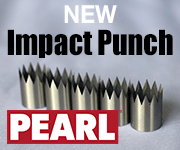The Third Wave: An Iron Tale about the Business of Print, Vol. 3
- Published: March 01, 2002, By Colleen Canale, Raine Consulting
This is the third in a year-long series of columns about the challenges facing the converting industry. Through our series of web articles in 2002, we will provide critical insights, specific industry examples, and thought-provoking ideas about how technology is impacting converters today. This month, we examine the role "dot.coms" have played in spurring the converting industry toward a deeper understanding of their role in their customers’ supply chain.
The converting industry has seen a variety of Internet-based entities rise, then struggle or fall. Some have been virtual distributors, such as Selecterra.com, others have been collaborative hubs such as Packtion.
Hindsight, for converting, as any other industry, is always 20/20, and many look back today on their participation in these new business models as a period of speculation. Harry Kenworthy of Rogers Corp. was a participant in Selecterra.com. "We really wanted to do something to broaden our market exposure while also improving service to customers," says Kenworthy. "I feel we all should have done a better job of really understanding the customer’s critical requirements for delivery and service to clearly understand if the dot.com initiative was satisfying key unmet needs."
The research community echoes Kenworthy’s thoughts. Leif Eriksen, research director for chemical and process Industries at AMR Research, follows technology in the paper and packaging industries. "It was too much, too soon. In our opinion, the phenomenon demonstrated that the ageless rules of business still apply. But it also made the paper and packaging companies, and the converters they support, realize how important it was to make these technology investment for themselves. Doing business electronically is not going to go away."
The reality is the e-commerce providers:
- Developed a tremendous amount of good technology. Right now there is an abundance of exceptional applications for both the buy and supply side of converting and it's getting cheaper everyday.
- Acted as the training wheels to educate customers how to streamline ordering and buy cheaper. A smarter customer may not be ideal to some converters, but in the long term it forces converters to build solid relationships for the right reasons.
- Accelerated the converting industry's supply-chain awareness. Converters and their suppliers have just begun to use technology aggressively to improve their supply chain, taking cost and inefficiency out at each key step.
- Awakened converters to the permanent challenges of technology. First, converters will not be able to compete without applying technology to integrate systems inside their own four walls. And secondly, being "Net Ready" (i.e. ability to integrate with customers, suppliers, and partners) requires full-time activities around searching, selecting, and evaluating technology choices. This above all is forcing an emergence of new work models, new organization models, and new business models.
This article is excerpted from the Raine whitepaper The Third Wave: An Iron Tale about the Business of Print, downloadable free of charge from RaineConsulting.com.











